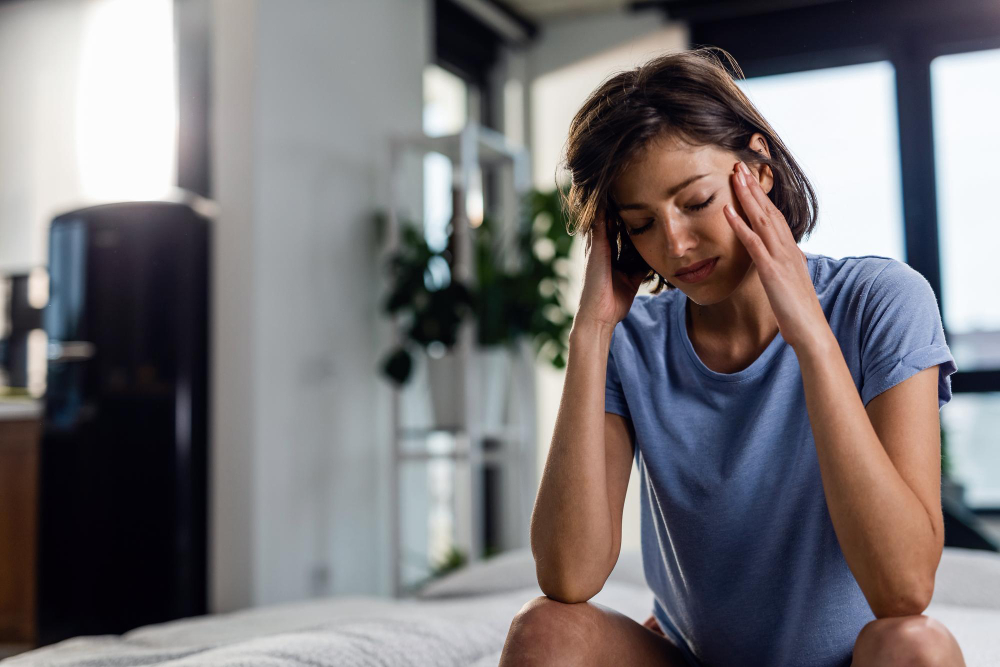What Are Panic Attacks?
Panic attacks are intense episodes of fear or anxiety that can strike suddenly, leading to a range of distressing physical symptoms.
These symptoms may include rapid heartbeat, shortness of breath, chest pain, dizziness, sweating, trembling, and a sense of impending doom. While panic attacks can be terrifying, understanding their underlying causes can help individuals manage and cope with them more effectively

What Causes Panic Attacks?
Hormonal changes during menopause, particularly fluctuations in estrogen and progesterone, can influence neurotransmitters in the brain, such as serotonin and norepinephrine. These neurotransmitters play a crucial role in regulating mood and the body’s stress response.
For some women, hormonal imbalances during menopause can trigger or worsen anxiety disorders, making them more susceptible to panic attacks. Individuals with a history of anxiety or panic disorder may find that the hormonal fluctuations of menopause exacerbate their symptoms.
Moreover, menopause is a significant life transition that can bring about various stressors, including changes in roles, relationships, and responsibilities. These life changes, combined with hormonal shifts, can create a perfect storm for heightened anxiety and panic.


How to Get Out of Panic Attacks?
Practicing deep breathing exercises can help calm the nervous system and alleviate the physical symptoms of panic attacks.
Engaging in relaxation techniques such as meditation, progressive muscle relaxation, or guided imagery can promote a sense of calm and reduce anxiety.
Understanding what triggers panic attacks can be beneficial. Keeping a journal or seeking professional help can aid in identifying triggers and developing coping strategies.
Physical activity can be an effective way to manage anxiety and stress. Aim for regular exercise that you enjoy, such as walking, swimming, or yoga.
Caffeine and alcohol can exacerbate anxiety symptoms, so it’s best to consume them in moderation or avoid them altogether.
A balanced diet rich in whole foods, fruits, vegetables, and lean proteins can support overall well-being and contribute to a more stable mood.
Bioidentical Hormone Replacement Therapy (BHRT) may help rebalance hormone levels, potentially reducing anxiety and panic attacks associated with menopause.
Want help with Panic Attacks?
Click here to learn more about your options with the Healthy Hormone Club

